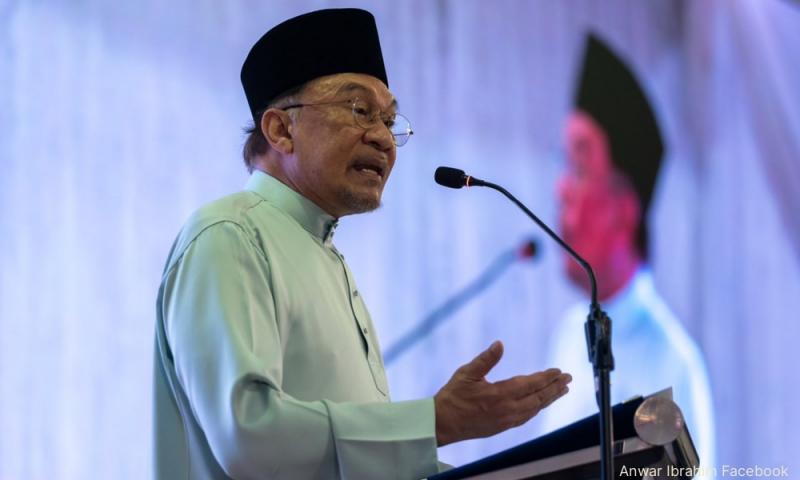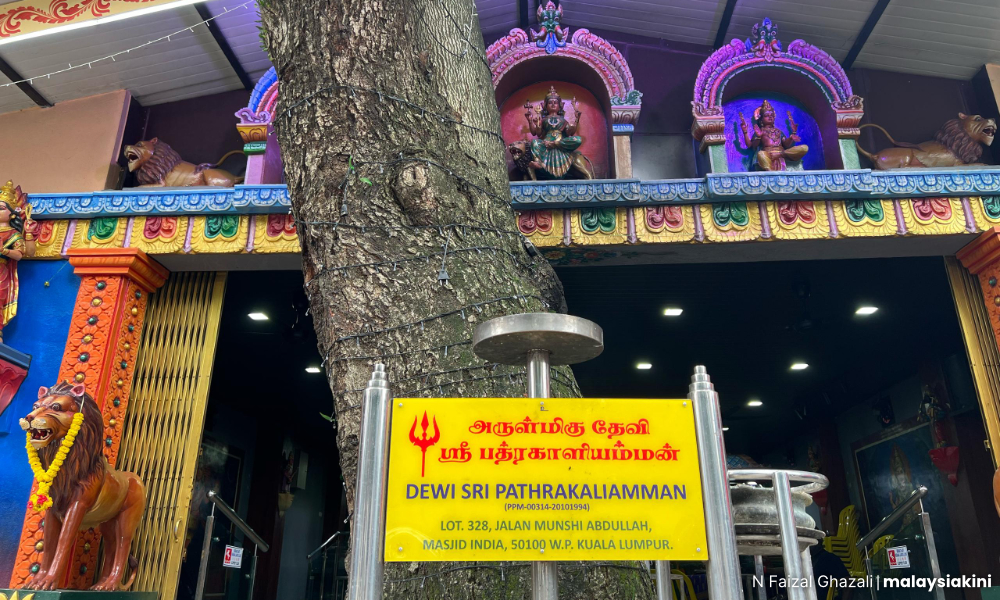

Tajuddin Mohd Rasdi
Published: Apr 5, 2025 10:15 AM
Updated: 1:15 PM
COMMENT | In response to a recent comment piece which claimed that Prime Minister Anwar’s victory speech during the groundbreaking ceremony of the so-called Madani Mosque in the temple relocation issue was both arrogant and also inviting to racial animosity, I beg to differ.
Anwar’s speech was tactical in soothing the ignorant flames of anger from the Muslim Malays.
The writer, being in another country and safely typing without any fear, did not feel the searing heat of “ignorant anger” among the Malays made worse by opportunistic politicians, social media influencers, and one hateful mufti against the Hindus.
I read many of these comments, and especially that of the mufti throwing fuel to a fire worse than whatever had engulfed Californian homes.
In any battle, the general leading an army will always give the victory speech to rally the soldiers.
The enemy will always fan the war cry of their own victory, and the general must ensure that his soldiers will be ever ready for battle with hope and pride as their weapons and shield. The writer of the article was never a general, commanding zero troops.
Sentiment among Malays
In the temple incident, the Malays had felt bitter “defeat” because, as one influencer suggested, “Dah lah tidak diroboh dapat tanah free dan mungkin dibina yang baru dari duit mana tu?” (Not only did the temple not get demolished, they got free land too, and where is the money to build a new temple going to come from?). That was the sentiment.
Published: Apr 5, 2025 10:15 AM
Updated: 1:15 PM
COMMENT | In response to a recent comment piece which claimed that Prime Minister Anwar’s victory speech during the groundbreaking ceremony of the so-called Madani Mosque in the temple relocation issue was both arrogant and also inviting to racial animosity, I beg to differ.
Anwar’s speech was tactical in soothing the ignorant flames of anger from the Muslim Malays.
The writer, being in another country and safely typing without any fear, did not feel the searing heat of “ignorant anger” among the Malays made worse by opportunistic politicians, social media influencers, and one hateful mufti against the Hindus.
I read many of these comments, and especially that of the mufti throwing fuel to a fire worse than whatever had engulfed Californian homes.
In any battle, the general leading an army will always give the victory speech to rally the soldiers.
The enemy will always fan the war cry of their own victory, and the general must ensure that his soldiers will be ever ready for battle with hope and pride as their weapons and shield. The writer of the article was never a general, commanding zero troops.
Sentiment among Malays
In the temple incident, the Malays had felt bitter “defeat” because, as one influencer suggested, “Dah lah tidak diroboh dapat tanah free dan mungkin dibina yang baru dari duit mana tu?” (Not only did the temple not get demolished, they got free land too, and where is the money to build a new temple going to come from?). That was the sentiment.

The Dewi Sri Pathrakaliamman temple
A mufti said “Apa jenis ugama yang membenarkan rumah ibadat dibina atas tanah orang dan tanah haram?” (What kind of religion allows a house of worship to be built on someone else’s land or illegal land?).
The same mufti commented in the Abang Belon incident, “Untuk orang bukan Islam kamu bersabar 10 tahun tetapi untuk penjaja Islam kamu tak pula tunjuk sabar” (For non-Muslims you showed 10 years of patience, but for a Muslim trader you did not show such patience).
These were the sentiments. There was even a police report made by National Unity Minister Aaron Ago Dagang on a Malay for inciting war against Hindus in Malaysia.
What should Anwar have said? It’s ok, calm down, the temple was there for 130 years, we should honour it and let it stay there forever.
Anwar had to use the “victory” speech to show the victory of wisdom and calm negotiations against the vitriol of hate churned up by irresponsible preachers, muftis, and social media influencers. The Malays must be shown a “victory” of compassion and sense over the narrative of hatred.
A mufti said “Apa jenis ugama yang membenarkan rumah ibadat dibina atas tanah orang dan tanah haram?” (What kind of religion allows a house of worship to be built on someone else’s land or illegal land?).
The same mufti commented in the Abang Belon incident, “Untuk orang bukan Islam kamu bersabar 10 tahun tetapi untuk penjaja Islam kamu tak pula tunjuk sabar” (For non-Muslims you showed 10 years of patience, but for a Muslim trader you did not show such patience).
These were the sentiments. There was even a police report made by National Unity Minister Aaron Ago Dagang on a Malay for inciting war against Hindus in Malaysia.
What should Anwar have said? It’s ok, calm down, the temple was there for 130 years, we should honour it and let it stay there forever.
Anwar had to use the “victory” speech to show the victory of wisdom and calm negotiations against the vitriol of hate churned up by irresponsible preachers, muftis, and social media influencers. The Malays must be shown a “victory” of compassion and sense over the narrative of hatred.

Anwar had to placate the Malays that was popularly using the word “kuil haram”, and there was even hacking done to Google Maps that showed the term “kuil haram jada”, which is a swear word in the northern dialect where I was raised.
Anwar had to play along
The prime minister, I think, had to look to be in agreement with the populist use of the derogatory term or else he would have been seen to be weak and subjugating Islam to the Hindus.
Anwar is a politician and a general to the Malays, while the writer is a columnist and a blogger with no responsibility to inspire the troops and no real wars to engage in.
Finally, even though I have made videos and written about the importance of gazetting cultural heritage and never once did I use the term “kuil haram”, if I were in Anwar’s shoes, I would have used the same words he did because as an academic, also like the writer, Anwar and the two of us writers command different things and are in totally different situations and stations in life.
TAJUDDIN MOHD RASDI is a professor of Islamic architecture at UCSI University.
No comments:
Post a Comment